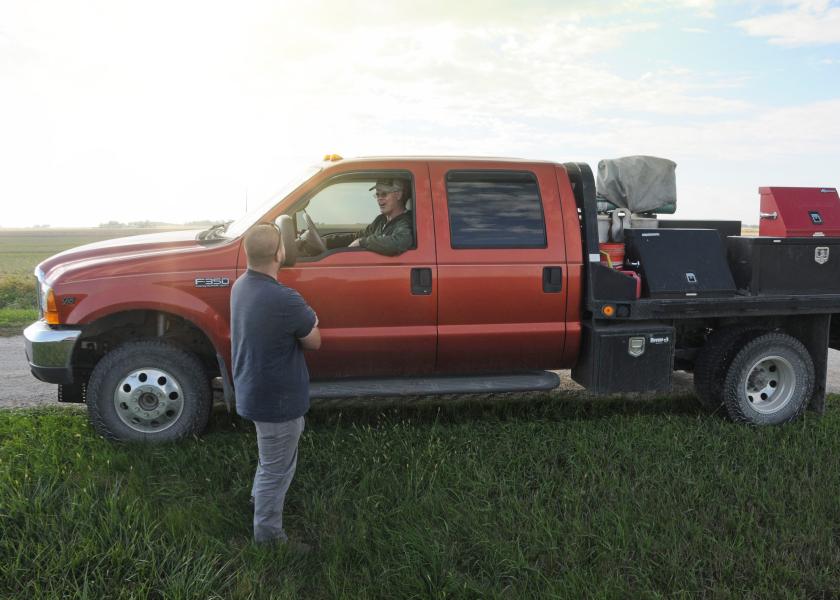Here's How to Make Tough Talks Easier

Little steps can ease frustration and improve communication
Crucial conversations — you have them with your employees, banker, grain buyer, family and others. How well you handle these exchanges plays a key role in your business success.
What is a crucial conversation? They happen when the stakes are high, opinions differ, emotions run strong or outcomes are important, says Mike Poskey, president and CEO of Zero Risk HR, which helps organizations develop talent.
“When a crucial conversation is done wrong, you have a communication breakdown,” he says. “This damages trust and means you have to repair the relationship.”
To reach effective communication, which means a two-way process of reaching mutual understanding, Poskey provides these 10 steps:
- Know the facts of the situation. Don’t just assume you’re accurate.
- Be aware of your communication challenges. Ask for feedback on how well you communicate.
- Have the other person’s best interest at heart. Always be genuine and honest to show you care.
- Let the facts lead in the conversation. State clearly what you are trying to address. Be direct, confident and professional. Don’t apologize for what you have to say.
- Identify a mutual purpose between yourself and the other person. Ask yourself: Do they believe I care about their goals in this discussion? Do they trust my intentions? Am I staying focused on solving a problem with this person?
- Prepare for the conversation. Think about where the conversation could go. “A little preparation can have a huge outcome,” Poskey says. “Role play the conversation.”
- Establish a safe environment and look for barriers. Are they getting defensive? Am I in control of my emotions?
- Create dialogue. Ask for their thoughts and acknowledge any emotions people appear to be feeling. Restate what you hear.
- Agree on a solution and/or outcome for the situation. Be specific.
- Follow up and check in on the solution. You being accountable makes them be accountable.
Ground Rules for Good Listening
As a leader in your operation, you must be a good listener. “When you listen, you understand the other person’s side of the issue,” says Val Farmer, a clinical psychologist and author. He provides these guidelines for good listening:
- Use body language, such as leaning forward, eye contact and welcoming facial expressions, to show you are listening.
- Stay in the listening role. If you are having a high-stakes discussion, you need to understand the other person. Don’t be too quick to give your sage advice.
- As a listener, sit at a 45° angle from the speaker so you can each look away to think.
- Don’t interrupt. When they stop speaking, confirm they have said all they want to say.
- If you become overloaded as the listener, ask to take a break.







